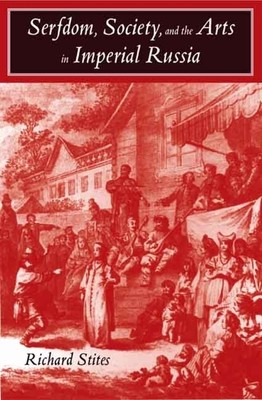
- We will send in 10–14 business days.
- Author: Richard Stites
- Publisher: Yale University Press
- ISBN-10: 0300137575
- ISBN-13: 9780300137576
- Format: 16 x 23.3 x 3.2 cm, minkšti viršeliai
- Language: English
- SAVE -10% with code: EXTRA
Reviews
Description
Serf-era and provincial Russia heralded the spectacular turn in cultural history that began in the 1860s. Examining the role of arts and artists in society's value system, Richard Stites explores this shift in a groundbreaking history of visual and performing arts in the last decades of serfdom. Provincial town and manor house engaged the culture of Moscow and St. Petersburg while thousands of serfs and ex-serfs created or performed. Mikhail Glinka raised Russian music to new levels and Anton Rubinstein struggled to found a conservatory. Long before the itinerants, painters explored town and country in genre scenes of everyday life. Serf actors on loan from their masters brought naturalistic acting from provincial theaters to the imperial stages. Stites's richly detailed book offers new perspectives on the origins of Russia's nineteenth-century artistic prowess.
EXTRA 10 % discount with code: EXTRA
The promotion ends in 23d.09:59:09
The discount code is valid when purchasing from 10 €. Discounts do not stack.
- Author: Richard Stites
- Publisher: Yale University Press
- ISBN-10: 0300137575
- ISBN-13: 9780300137576
- Format: 16 x 23.3 x 3.2 cm, minkšti viršeliai
- Language: English English
Serf-era and provincial Russia heralded the spectacular turn in cultural history that began in the 1860s. Examining the role of arts and artists in society's value system, Richard Stites explores this shift in a groundbreaking history of visual and performing arts in the last decades of serfdom. Provincial town and manor house engaged the culture of Moscow and St. Petersburg while thousands of serfs and ex-serfs created or performed. Mikhail Glinka raised Russian music to new levels and Anton Rubinstein struggled to found a conservatory. Long before the itinerants, painters explored town and country in genre scenes of everyday life. Serf actors on loan from their masters brought naturalistic acting from provincial theaters to the imperial stages. Stites's richly detailed book offers new perspectives on the origins of Russia's nineteenth-century artistic prowess.


Reviews